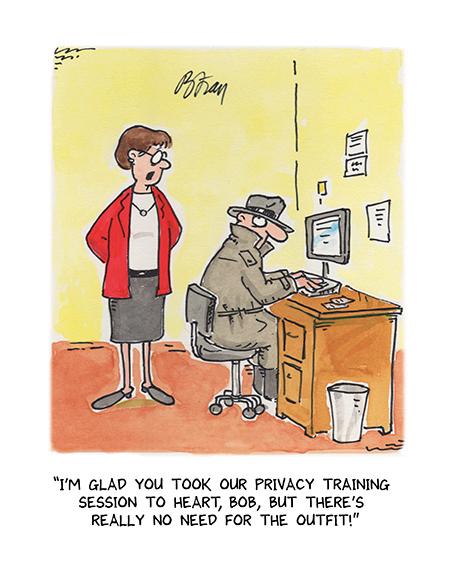Sussex Digital In Reach Team



















Yes that’s right! Until 2010, carrier pigeons were proved to be faster than the Internet.

When comparing upload speeds, a test was done to fly a carrier pigeon with a USB stick 50 miles to an internet provider, whilst racing against an internet upload The pigeon made it in just over an hour, while the upload took over 2 hours!
More recent technological advances have meant that the humble pigeon can be out-paced these days. But sometimes, going back to basics really does work. More traditional methods, including carrier pigeons are still used today in areas where digital communication lines are either compromised due to natural disaster, or where a digital infrastructure remains undeveloped
Go pigeons!

We are a dedicated team of people, brought together to assist you with all things digital in your care setting, even your DSPT! Get in touch today, or visit our website to find out more about what we do, and how we can help. sussexdigitalteam.co.uk


Our 2025 in-person training programme has started. Get in touch today to arrange your free Data Security and Protection training. Available to all front line staff. Sign up and get started today!


Starting January 2025, care providers in Sussex can benefit from free, in-person Data Security and Protection training for their frontline staff This unique opportunity is funded by the Digital Care Hub and designed to ensure care providers meet the requirements of the Data Security and Protection Toolkit (DSPT)
Why Take Part? - Data security and protection are essential in safeguarding sensitive information and building trust with those in your care The DSPT specifies that 95% of staff must complete annual data protection training, with a minimum assessment score of 80% required to remain compliant. This course, developed by the Better Security, Better Care programme, ensures that your team is equipped with the knowledge and skills to protect both residents and your organisation
Delivered by Experts Who Understand Adult Social Care - The course will be delivered by Tasha, Claire, and Nada from the Sussex Digital In-Reach Team With over 25 years of hands-on experience each in adult social care, these trainers bring a deep understanding of the challenges & complexities of the sector Their extensive knowledge means they can provide practical, realistic solutions tailored to the needs of care providers.
Course Highlights - The training includes four essential modules:
● Module 1: Staff Responsibilities and People’s Rights - Learn about the responsibilities of staff in handling data and the rights of individuals to privacy and confidentiality.
● Module 2: Sharing, Recording, and Securely Disposing of Data - Understand best practices for securely managing data throughout its lifecycle.
● Module 3: Preventing Fraud, Scams, and Maintaining Security - Gain practical tips to protect against scams, ensure device security, and safeguard paper records
● Module 4: Managing and Responding to Data Breaches - Explore how to effectively manage data breaches, respond appropriately, and prevent future risks
At the end of the training, participants will complete a short assessment to demonstrate their understanding and meet DSPT requirements.
Who Should Attend? - This course is perfect for frontline staff who handle sensitive data as part of their day-to-day work in care homes, home care settings, and other adult social care environments.
Why Now? - With the growing importance of cybersecurity and data protection in care, this is the perfect time to equip your staff with the tools and knowledge they need And with no cost to your organisation, it’s an opportunity you won’t want to miss. Stay ahead of compliance requirements, enhance your team’s skills, and support better outcomes for the people in your care
How to Sign Up - Places are limited, so don’t wait! Contact Sussex Digital In Reach Team to reserve your slot
Arrange your free, in person training sessions by contacting us today. nada@westsussexpartnersincare.org





DSPT - Interactive Workshop - Week1 Staffing & Roles
Thursday 6th February: 2.00 - 3.00pm
DSPT - Interactive Workshop - Week 2 Policies & Procedures
Wednesday 12th February: 2.00 - 3.00pm
DSPT - Interactive Workshop - Week 3 Data Security
Thursday 20th February: 2.00 - 3.00pm
DSPT - Interactive Workshop - Week 4 IT Systems & Devices
Thursday 27th February: 2.00 - 3.00pm
Republish your DSPT in your lunch hour
Wednesday 26th March: 12.30 - 1.30pm




Are you one of the 90% DSPT compliant Sussex care homes?
If not, we can help you complete your DSPT by either attending one of our free online sessions, or we can even help you 1:1 by phone, Zoom call or a face-to face visit.

As Technology becomes more popular in the Care industry, it is important to ensure that you have the correct infrastructure in place. Here we have tools to help you assess your current systems and helpful resources to guide you when you need to make improvements.
Digital Readiness Survey
This free, online self-assessment tool has been specially designed to help you understand your strengths as well as what might be blocking your way. Completing the questionnaire will provide evidence for future funding to be made available to social care providers like you across Sussex to support your digitalisation.
This could mean funding towards fast broadband or WiFi coverage, falls prevention equipment, remote monitoring, EMAR, digital care planning system or staff training.
We recommend that all care providers complete this 5 minute survey at least once per year. It has been designed to help you understand where you might need to make changes or upgrades to your existing digital infrastructure in order to support the growing number of digital technologies now being used in social care.



The right information. At the right time. In the right place. We are working towards a truly integrated health and care system. For that to work, we need our online systems to be able to talk to each other effectively, so clinicians have the right information to help them do their job well Plexus Care Record connects health & care records for practitioners in Sussex, providing them with the right information at the right time. By connecting digital systems across GPs, hospital and community healthcare services as well as local authorities, Plexus allows practitioners to securely access and update relevant patient information as part of the shared health and care record anywhere anytime You can read a full list of health and care organisations that share information into and use the Pl h d d h
Plexus Care Record - Sussex Health & Care (ics.nhs.uk)
Seeking 200 Care Homes in Sussex to roll out Shared Record - Plexus

We are excited to announce that we are looking for 200 to participate in the roll-out of Plexus, our shared record system. Plexus is continuously growing and developing, and in time, it will ensure that health and social care in Sussex are truly connected, providing you with all the information you need with just a click of your mouse. Plexus is free for providers and includes data similar to GP Connect, with several additional features to enhance care coordination.
If you are interested in joining this initiative, please contact Nada for more details. Together, we can create a more integrated and efficient care system in Sussex.

nada@westsussexpartnersincare.org

Plexus - Shared Care Record for Sussex



Information Governance - Plexus - Shared Record for Sussex
Monday 10th February: 12 00 - 1 00pm
Information Governance - Plexus - Shared Record for Sussex
Wednesday 12th February: 12.00 - 1.00pm
Information Governance - Plexus - Shared Record for Sussex
Friday 21st February: 11.00am - 12.00pm
Principles of Information Governance (IG):
● Grasp core IG principles, including confidentiality, data protection, and consent.
● Understand the critical importance of safeguarding sensitive information in daily care work
Staff Training:

● Learn how to implement Role-Based Access Control (RBAC) in alignment with your Standard Operating Procedures (SOPs)
● Additional IG training, covering legal responsibilities in accessing health information and the importance of doing so only when directly caring for a service user
Reporting and Compliance:
● Understand the steps for reporting any inappropriate use of data
● Reinforce your knowledge through a short quiz at the end of the session
Patient Consent and Opt-Out:
● Educate yourself on patient rights concerning consent and opting out of the shared record system
● Learn how to sensitively handle situations when patients choose not to participate
Handling Confidential Patient Information:
● Deepen your understanding of what constitutes confidential patient information and the importance of protecting it
● Explore scenarios that require extra care in sharing and managing sensitive information, including the use of NHS Mail
● Review procedures for reporting incidents or breaches in line with the Data Security and Protection Toolkit (DSPT)
Recent years have seen more employees now use their own devices to access work emails, systems and files This can make practical sense for many organisations, but the use of personal devices can pose a serious security risk if appropriate measures are not in place A risk to personal information, as well as other confidential or commercially sensitive information Some organisations (particularly those handling sensitive data) might take the step of banning the use of any personal devices for work purposes But for others there are good reasons for allowing personal devices to be used The key is making sure security risks have been considered and appropriate measures are in place to protect the organisation and those whose personal data is held.

It’s essential for any organisation which allows employees to use their own devices for work purposes, to have robust security measures in place to address security risks, along with appropriate measures to protect personal data Furthermore, employees need to know what’s expected of them and this is where having a Bring Your Own Device (BYOD) Policy is crucial.
What are the risks, what key security measures should be in place, and what should a BYOD Policy cover?
Key BYOD risks
1 Loss or theft of devices – we’re all human, and I suspect many of us have lost a mobile before, or perhaps even left a laptop somewhere. There’s a clear risk if it’s possible for someone else to access valuable or sensitive information on the device.
2. Use of public wi-fi services – connecting to open public wi-fi when employees are out and about can leave personal devices vulnerable to hackers. There’s also a risk if home networks aren’t secure.
3. Malware and viruses – employees can view any website and download any app on their own device, raising the risk these could contain damaging malware or viruses.
4. Former employees – failing to remove access and data from devices when people leave the organisation could come back to haunt the organisation. I know of cases where this has caused a data breach.
Key steps to mitigate BYOD risks
Here are some methods to reduce or eliminate the risks This is by no means an exhaustive list, but will hopefully give you some useful pointers
● Require employees to use appropriate authentications settings when accessing their devices For example, access via a passcode or fingerprint
● Restrict which business applications and data employees can access via their own device.
● Implement enhanced user authentication for business apps – multi-factor authentication (MFA) That includes access to their business email account (e g via Outlook) which may include personal information in the content or in attachments.
● Consider measures to make sure personal data from business apps can’t be downloaded, stored or shared via personal devices. Don’t allow staff to share data or screenshots from any business app they use with any other app they may have on their device (e g social media or file sharing apps)
● Put clear procedures in place for lost or stolen devices For example, reporting the loss and the capability to remotely delete data from a lost or stolen device.
● Make sure clear procedures are in place to update access controls when people leave the business or change roles
● Prohibit the use of public wi-fi services, which may be insecure.
● Provide advice on making sure your home wi-fi is secure
● Ask employees to update apps regularly to make sure any security vulnerabilities are ‘patched’
● Ask them to run antivirus / malware checks regularly.


Managing how employees use their own devices for work | Data Protection Network
We are holding a free event to help you implement practical steps to mitigate risks of Bring Your Own Device


In the wake of the COVID-19 pandemic, digital tools like NHSmail have become essential for care homes, enabling secure communication and data sharing across the health and social care system. However, the rapid adoption of these technologies during a time of crisis has exposed significant gaps in training, support, and cybersecurity awareness among care providers. These challenges threaten not only compliance with GDPR and safeguarding protocols but also the safety and trust of the vulnerable individuals these services support.
This proposal outlines a comprehensive approach to address these risks, focusing on education, building digital resilience, promoting safe practices, and empowering care homes to maximise the potential of NHSmail.
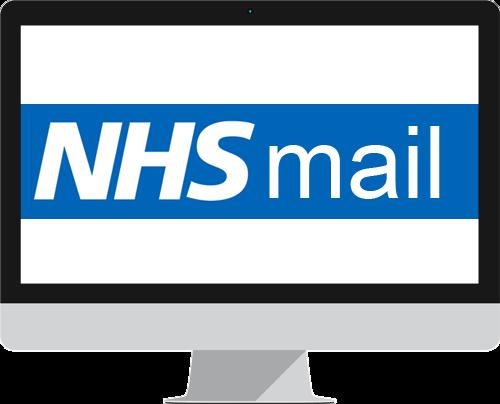
Through targeted training, strategic engagement, and tailored support, this initiative seeks to:
● Improve cybersecurity awareness to reduce vulnerabilities to data breaches and cyberattacks.
● Enhance operational efficiency by resolving common barriers to NHSmail adoption and usage.
● Foster collaboration across large providers, local authorities, and SMEs to ensure that all segments of the social care sector benefit from secure communication practices.
● Offer sustainable solutions that align with the unique needs and financial constraints of social care providers. By addressing both technical & behavioural challenges, this proposal ensures that care homes are not only compliant but also confident in their use of NHSmail. It represents an investment in the digital future of social care, providing a scalable framework that safeguards sensitive data while empowering staff to deliver better outcomes for residents.
Option A: Comprehensive National NHSmail Training and Support Programme
This option addresses critical cybersecurity risks and unsafe practices among care homes using NHSmail. It includes targeted training, resource development, direct support, and a scalable framework for national implementation.
Cybersecurity Risks and Unsafe Practices
1. Inadequate Training Post-Adoption - During the pandemic, many care homes were given access to NHSmail without the necessary training to use it securely and efficiently
o Risk: Staff often rely on insecure practices such as sharing passwords or bypassing Multi-Factor Authentication (MFA), compromising data security
2. Unsecure Email Usage - A lack of understanding of NHSmail’s benefits and functionalities leads some care homes to revert to non-secure email platforms.
o Risk: Sensitive resident and staff data are exposed to breaches, violating GDPR and safeguarding protocols.
3. Over-Reliance on National Administration Service (NAS) - The NAS lacks tailored support for the unique needs of the social care sector, forcing care homes to depend on generic and often slow responses.
o Risk: Delayed issue resolution, advice that does not align with social care needs, and risks to operational efficiency and data security.
4. Inactive or Mismanaged Mailboxes - High staff turnover and inadequate handovers often result in shared mailboxes becoming inactive or poorly managed.
o Risk: Missed critical communications, potential breaches of sensitive data, and unmanaged mailbox clutter increasing operational inefficiency
5. Device and Network Security Gaps - Many care homes lack guidance on securing devices, particularly those used in Bring Your Own Device (BYOD) scenarios.
o Risk: Unsecured devices create entry points for cyberattacks, increasing the vulnerability of NHSmail systems.
6. Insufficient Cybersecurity Awareness - Limited knowledge of phishing, malware, and other threats leaves care homes exposed to cyberattacks.
o Risk: Heightened chances of data breaches, ransomware attacks, and compromised operations.
7. Shared Login Practices - Staff often use shared logins due to a lack of training, bypassing individual authentication.
o Risk: Non-compliance with the Data Security and Protection Toolkit (DSPT) standards and a lack of accountability.
8. Slow Response Times and Poor Engagement - Some care homes are slow to respond to tickets or fail to engage with NHSmail guidance altogether
o Risk: Long delays in resolving issues, potentially leading to abandonment of NHSmail in favour of insecure or unaccredited alternatives.

Monday 17th February: 11.30am - 12.30pm
Join us for an essential webinar designed for all NHSmail users as we walk you through the upcoming changes to NHSmail security protocols. Starting August 19, NHSmail users will begin receiving pop-up notifications prompting them to register an MFA (Multi-Factor Authentication) method upon logging into their accounts. While this prompt can be snoozed for 14 days, all users must complete MFA registration by September 2, 2024. Failure to enroll in MFA by the deadline will result in significant changes to your NHSmail account, including:
● Enhanced Password Policy: On September 2, passwords must be reset with a minimum of 20 characters.
● Session Management Changes: Persistent browsing sessions will no longer be allowed, and sign-in frequency will be restricted.
● Regular Password Expiry: Passwords will now expire every 90 days, requiring regular updates.
This webinar will provide detailed explanations of these changes, why they are being implemented, and how they will affect your daily use of NHSmail. Additionally, we’ll cover a range of frequently asked questions that we've encountered while supporting numerous providers with their NHSmail queries.
Join us for a series of 30-minute bite-sized sessions designed specifically for social care providers in Sussex These sessions will cover essential topics to help you streamline your email management
Session Topics Include:
1 Accessing Shared Mailboxes – Learn how to access and manage shared mailboxes If you’re unable to find your shared mailbox, we’ll show you how to locate it.
2 Setting Up Shared Mailboxes – Step-by-step guidance on setting up shared mailboxes
3. Adding and removing users- Learn the practical steps to remove user accounts that are no longer needed in your setting or add new users
4 Ensuring Account Security – Best practices to prevent your NHSMail account from being deleted
5. Setting Up Multi-Factor Authentication – Learn how to enhance the security of your NHSMail account with multi-factor authentication
6. Making the Most of the NHSMail Helpdesk – Many NHSMail issues can only be resolved by the helpdesk. Learn how to use this service effectively to avoid frustrations, closed tickets, and unresolved issues.
7 Q&A Session – Have specific questions about NHSMail? Our expert trainer will be available to address any additional queries you may have.



Bite Size NHSMail: Essential Tips for Social Care Providers
Tuesday 25th February: 10 30 - 11 30am
Bite Size NHSMail: Essential Tips for Social Care Providers
Tuesday 4th March: 10.30 - 11.30am Bite
Tuesday 18th March: 12.30 - 1.30pm




Are you ready for GP Connect?

CareLineLive is rolling out integration with GP Connect which enables read-only access of a service user's GP record Read about whether you are eligible here We’ve been hard at work working on integrating GP Connect with CareLineLive. You may find it to be an invaluable tool if you’re providing direct care in England.
Integration with GP Connect allows authorised health and social care workers in England to access their patient’s GP records, such as problems and issues, allergies and adverse reactions, medications, and more GP Connect may only be used for Direct Care purposes.
There are a few different types of GP Connect integration, and we’ve chosen to implement “Access Record HTML”, but what is it?
● Allows read-only access of an individual’s GP record (the only level of access that a care provider would be allowed with any software provider)
● Supports a restricted access mode, allowing non-clinical professionals to view a subset of the record

nce enabled for your environment, a ew GP Connect tab will be available ithin each client’s record. You will be quired to nominate users that will be lowed to open GP Connect, and ovide their professional registration formation if they are permitted to ccess the full GP Connect record
Finally, you will be asked to capture evidence that the client has consented to their GP record being accessed. This can be captured through a new tool within CareLineLive: Client Choices. Client Choices allow you to record any decisions made the client with regards to their care, including who authorised the decision, who supported them in making it, and any supporting documents (i.e. a signed agreement).
After many years of home care provider frustration in liaising with GPs and other health care professionals, GP Connect has the potential to be service changing impact positively on outcomes for people using services
Who can use GP Connect? - There are a handful of important requirements that your organisation must adhere to in order to access GP Connect:
● You must be CQC registered
● Your organisation (and each site) must be registered with the Organisation Data Service
● You must have a current “standards met” NHS Data Security and Protection Toolkit assessment
● You must be ready to sign the National Data Sharing Agreement for GP Connect
How can I start using GP Connect? - We’re starting to gather interest for a pilot scheme for CareLineLive’s GP Connect integration, with access starting from the end of September.
FAQs
● Can I use GP Connect if I’m not in England? No, you must be both registered with the Care Quality Commission and NHS England in order to access GP Connect
● Can I access GP Connect if I’m not a clinical professional? Yes – however without an appropriate professional registration you will only have access to a subset of the information available.
● Where can I read more about GP Connect? The NHS Digital website has information about who can use GP Connect, how to use it, and other important information
● Can I access GP Connect before we’ve started delivering care to a client? No, GP Connect can only be used for Direct Care purposes

CareLineLive have created some recordings about GP Connect and the benefits of using DSCR.
Watch for further information:
GP Connect latest webinar with CareLineLive


GP Connect webinar with input from a current provider

Benefits of using a DSCR compliant home care management system

How using a digital social care records system can generate financial savings for your business

How does CareLineLive help home care providers make efficiencies? Plus an overview of functionality in our development pipeline that will further contribute to operating efficiencies.

CareLineLive case study: Crescent Homecare, from paper to progress, complemented by the NHS North East and North Cumbria Integrated Care Coard
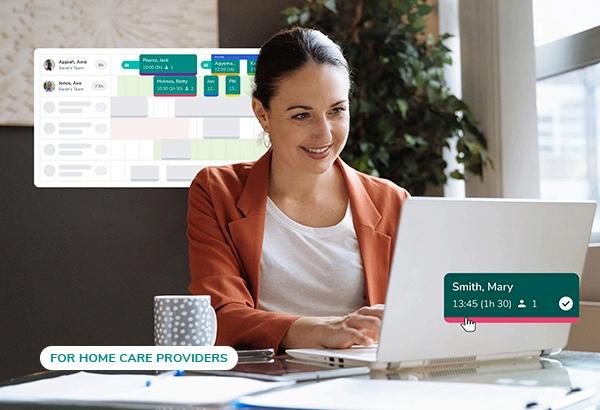



Adopting Digital Social Care Record (DSCR) will help you enhance the quality of care you provide, and streamline your operations. Book a demo from one of the Approved Suppliers below:
Applications for 2024 Grants have now closed and available funds have been allocated.
Benefits of Implementing a Digital Social Care Record:
●Efficiency at Your Fingertips: Capture information easily at the point of care, allowing more time for what matters most—caring for your clients
●Rapid Response: Support staff can react swiftly to changes in clients’ needs, ensuring timely and effective care1
●Secur eguarding client con

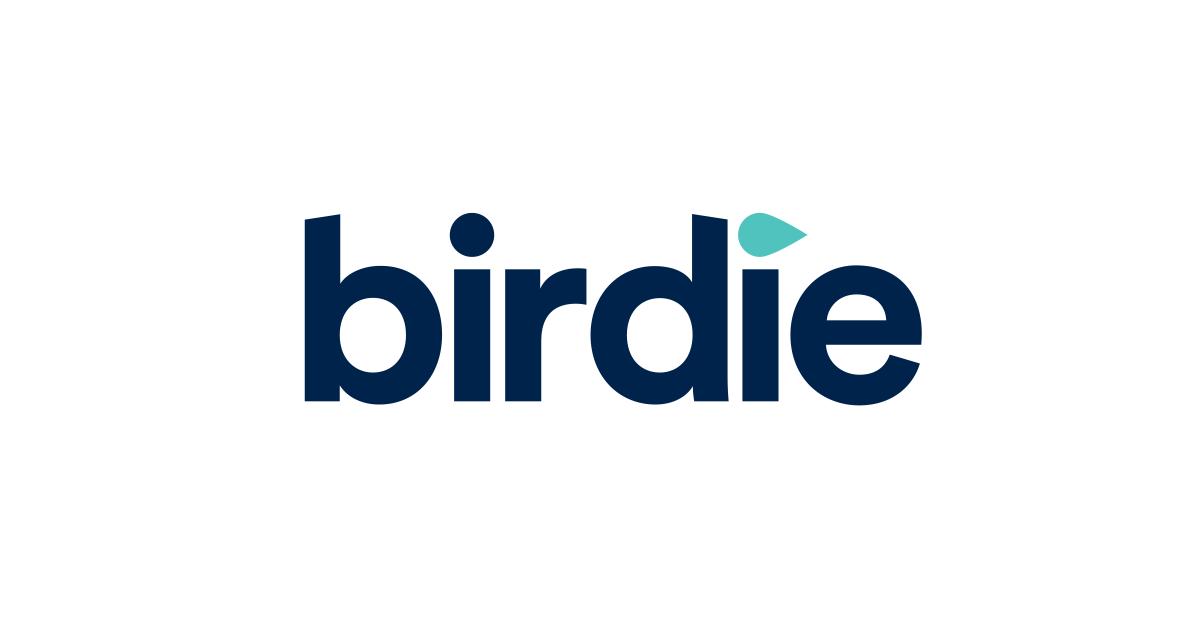
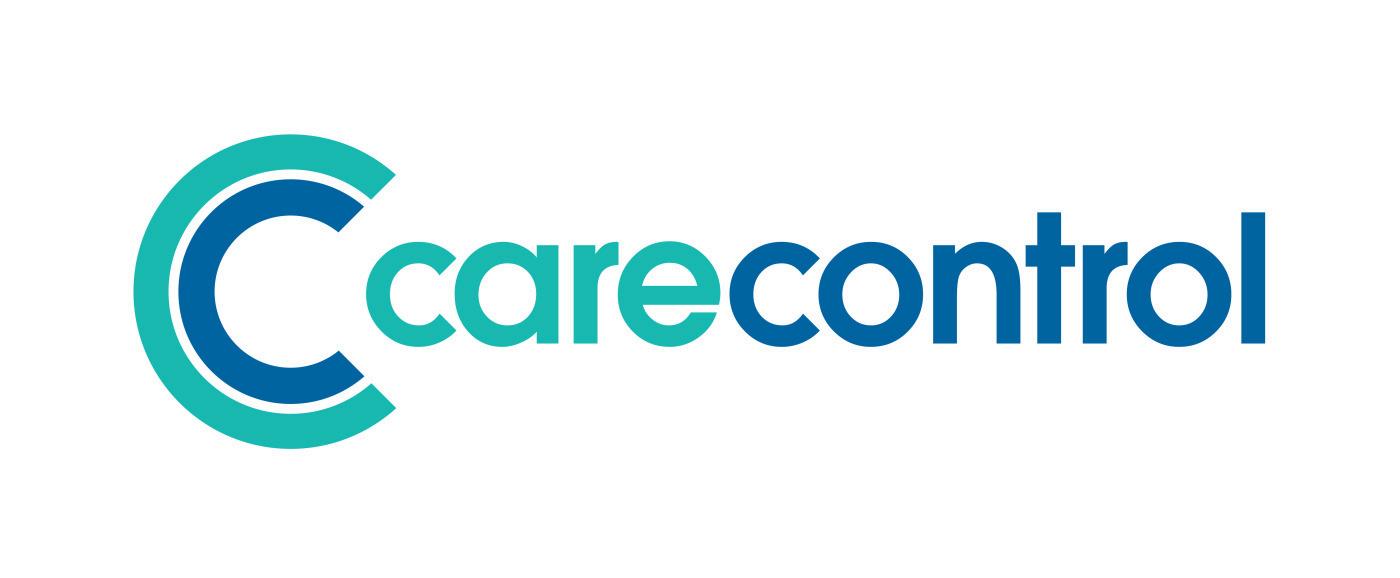

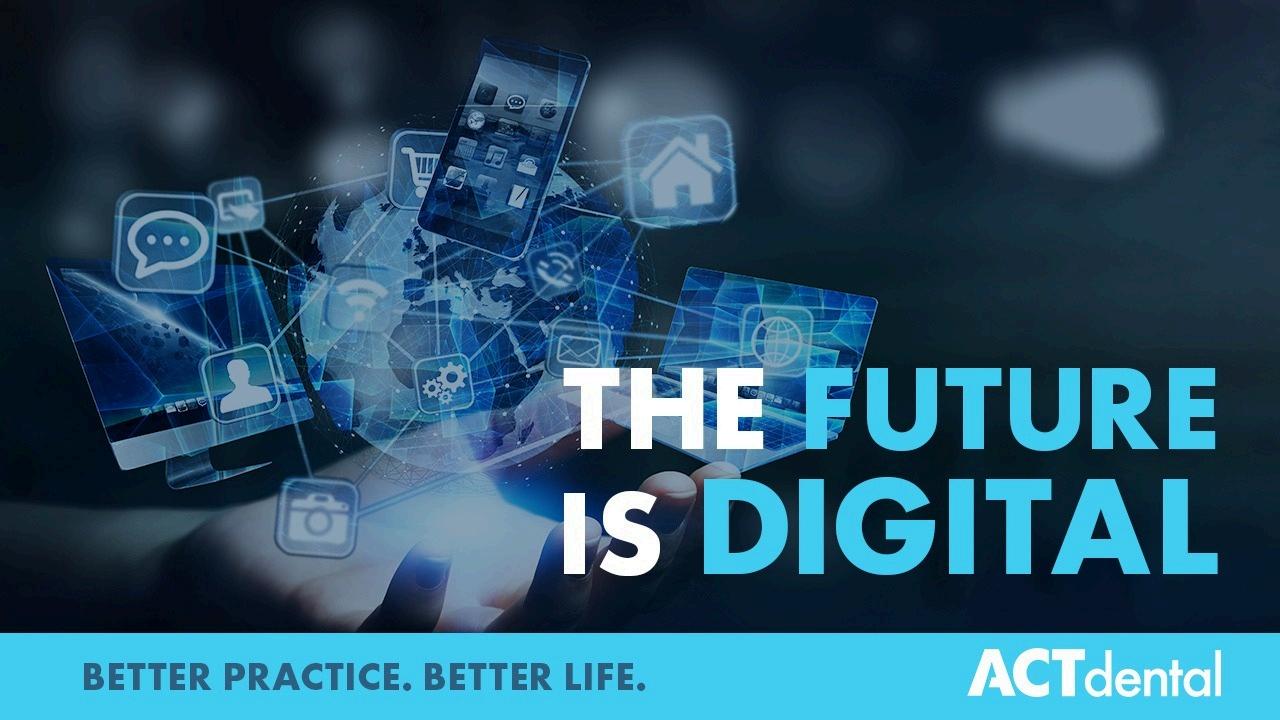
●Saf accessible to a digital care record system.

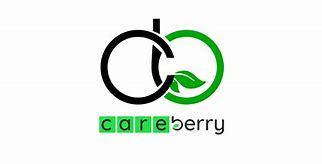




Check out the Assured Suppliers list below and book your demonstration to see how they can positively impact your workplace.
Choosing the right solution for your Digital Care Records
Once you have decided to start using digital social care records (DSCRs), you will need to find the right software solution for your organisation. There are many different options available, so it’s important to take time to consider your needs thoroughly.
Working out what you need When choosing the right DSCR for your organisation, you need to decide what the system needs to do.
Think about what’s essential and what’s optional. All assured suppliers offer basic features, so it’s important to consider what additional features you might need.
See the full list of Assured Suppliers: View the assured solutions list
To find out more about one of the digital social care record systems, visit this YouTube channel to watch a 30 minute demonstration of each solution.






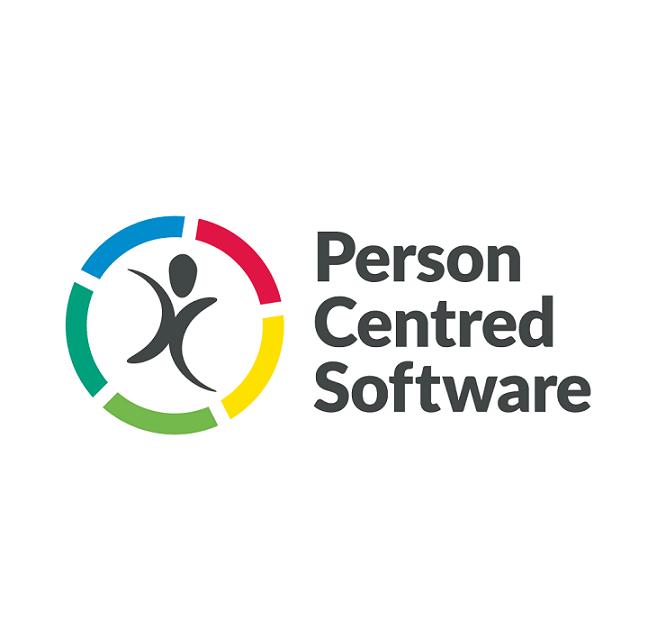


Do you have a DCSR story to tell?
We would love to know your experiences with migrating from one DCSR to another.
● Has the transition been easy?
● Has your old DCSR provider been helpful?
● Was resident information from your old provider, presented in a compatible format for your new provider?
● Have you felt supported by your new supplier with the set up?
Please get in touch and we can use this information to help other Care Providers take a smooth path migrating to a new DCSR.
Email us on: nada@westsussexpartnersincare.o

Over 82% of care providers in Sussex already use digital social care records, making a huge difference for managers and staff If you haven't transitioned yet, what's stopping you?
Time and money are common barriers, but the Digital Social Care programme can help. The Adult Social Care Digital Transformation Fund is available this year to cover costs, and our 'Clock is Ticking' campaign provides guidance on securing funding and choosing the right solution Visit Digital Social Care Records (sussexdigitalteam co uk) for more details and local support rds save time and money, streamline processes, and improve care quality us, your local team, for help and act now before the funding deadline digitising your care planning today and experience the benefits.





Event Details:
The Care Workers’ Charity is proud to announce the launch of “Words for a Cause” Month, taking place throughout March 2025. This initiative aims to highlight the invaluable contributions of care workers by encouraging storytelling and advocacy.
● Dates: March 1 – March 31, 2025
● Location: Nationwide
How to Participate:
Writing Competition:
● Eligibility: Open to current and retired care workers
● Submission Types: Poetry, blog posts, short stories, or articles (up to 750 words) reflecting the theme “The Power of Care ”
● Prizes: First place: £200; Second place: £100; Third place: £50
● Publication Opportunity: Top 30 entries will be featured in a dedicated book, amplifying the voices of care workers
Advocacy Initiative:
● Action: Participants are encouraged to write to their local Members of Parliament
● Purpose: Share personal stories and highlight challenges within the care sector to inspire policy changes

Follow the link for details about how to get involved: The Care Workers’ Charity Launches ‘Words for a Cause’ Month to Amplify Care Workers’ Voices - The Care Workers Charity
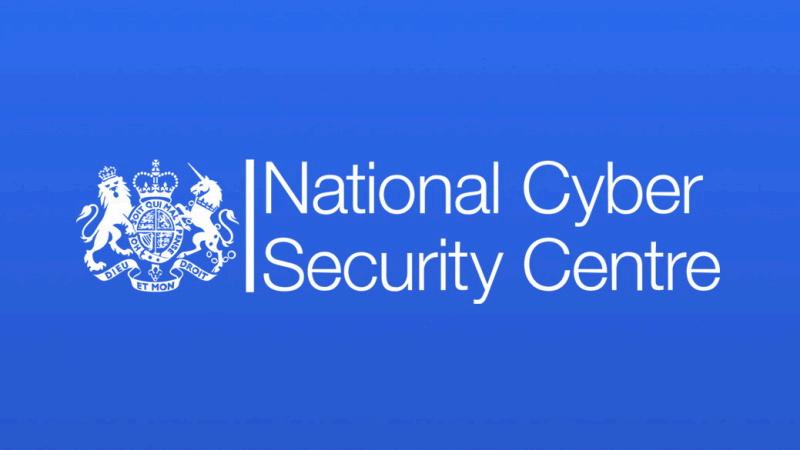
asswords to help keep your online accounts more secure, and explaining how the technology promises to do this. Today, using online services such as messaging, shopping, travel, social media, media streaming and government services almost always means having to set up and manage yet another account and password At the same time, we’re seeing more and more attempts by cyber criminals to take over online accounts for their own gain – often at your expense Keeping these account passwords out of the hands of cyber criminals can be overwhelming. Fortunately, there is technology that promises to make this easier, by using credential managers and passkeys to do much of the heavy lifting for you
What’s the problem with passwords?
You probably know all too well the personal pains of having to create, recall and enter passwords so I won’t repeat them here. When it comes to cyber attacks against online accounts, the main reasons why passwords are a pain are:
● Passwords can be guessed: Being told to think up and remember so many passwords means people (understandably) often create weak – and therefore more predictable – passwords This means a cybercriminal has a higher-than-we’d-like chance to guess someone's password.
● Passwords can be stolen: Being asked to enter (or paste) passwords so often and in so many places has made people less cautious when being asked to sign in to yet another site By going phishing, a cyber criminal can steal someone’s password by successfully tricking them into entering their password into a look-alike site.
● Passwords can be reused: Services storing people’s passwords insecurely allow cyber criminals to discover people’s passwords, meaning they can not only sign in to someone’s account in that service, but also any other service where that person has reused the same password

Passkeys are created, saved, stored and managed for you on your trusted device(s) – such as your smartphone, tablet or computer. This is done by your chosen credential manager This will most likely be the default one built in to your device – such as Apple Passwords, Google Password Manager, Samsung Pass or Windows Hello – unless you have specifically chosen to install and use another one.
This credential manager is responsible for protecting your passkeys and only allowing a passkey to be used once you've proven to it that you're really ‘you’ trying to use it When you want to use a passkey to access an account, it will often look like you are ‘just’ using your PIN, fingerprint or face to unlock the account. While there is a lot more security going on behind the scenes, they really are that easy to use.
As part of managing your passkeys most popular credential managers will also:
● securely back up new passkeys for their safety in case you lose all your devices
● copy (or 'sync') them to other devices you have so you don’t have to create a new passkey on each one
Where passkeys are offered, you can set one up for an existing account (look in the account security or privacy settings) or right from the beginning when creating a new account.
To find our more:
Passkeys: the promise of a simpler and safer alternative... - NCSC.GOV.UK



Ransomware is a type of malware which prevents you from accessing your device and the data stored on it, usually by encrypting your files A criminal group will then demand a ransom in exchange for decryption
Access - Attackers gain access to your network. They establish control and plant malicious encryption software. They may also take copies of your data and threaten to leak it.
Activation - The malware is activated, locking devices and causing the data across the network to be encrypted, meaning you can no longer access it.
Ransom demand - Usually you will then receive an on-screen notification from the cyber criminal, explaining the ransom and how to make the payment to unlock your computer or regain access to your data.
Payment is usually demanded via an anonymous web page and usually in a cryptocurrency, such as Bitcoin It is important to try and establish how the attackers gained access to your network in the first place so you can prevent future ransomware attacks.
Law enforcement does not encourage, endorse nor condone the payment of ransom demands If you do pay the ransom:
● there is no guarantee that you will get access to your data or computer
● your computer will still be infected
● you will be paying criminal groups
● you're more likely to be targeted in future For this reason, it is important that you always have a recent offline backup of your most important files & data.
Prevent and protect against ransomware
Attackers will likely threaten to publish data if payment is not made To counter this, you should take measures to minimise the impact of data theft
Take a look at our guidance that will help prevent you or your organisation experiencing a ransomware or other kind of cyber attack, and ultimately protect the data that is important to you



How to defend organisations against malware or ransomware attacks
How to make sure you can recover your important photos, documents, and other personal data stored on your IT equipment
15 good practice measures for the protection of bulk data held by digital services


The Prime Minister has put AI front and centre of Government plans for economic growth, improvements in health and education, and career opportunities.
AI Opportunities Action Plan states that “the government must:
● Invest in the foundations of AI: We need world-class computing and data infrastructure, access to talent and regulation
● Push hard on cross-economy AI adoption: The public sector should rapidly pilot and scale AI products and services and encourage the private sector to do the same This will drive better experiences and outcomes for citizens and boost productivity
● Position the UK to be an AI maker, not an AI taker: As the technology becomes more powerful, we should be the best state partner to those building frontier AI The UK should aim to have true national champions at critical layers of the AI stack so that the UK benefits economically from AI advancement and has influence on future AI’s values, safety and governance ”
Among the recommendations are proposals for the UK to invest in a supercomputer to boost computing power and a National Data Library to gather data held by the public sector, including anonymised health data, to support AI research and innovation.
Speaking at the launch on Monday 13 January 2025, Sir Kier Starmer emphasised the importance of NHS data for driving medical innovation while maintaining strict controls to protect privacy. He spoke about the importance of the National Data Library for research and innovation, describing it as a vital resource for advancing public services and private sector initiatives. He assured that NHS data would remain anonymised and under Government control, with measures in place to ensure its responsible use.
The Prime Minister also said:
“I do understand that change on this scale and at this speed can be worrying particularly when experts warn about safety risks. And that’s why the last government was right to establish the world’s leading AI Safety Institute, and we will build on that. Indeed, later this month, the UK will lead the first ever global AI safety test.”
Responding to the announcement, Michelle Corrigan, Programme Director of Digital Care Hub said:
“This Government has rightly identified AI as a powerful tool for improvement in the public and private sectors Digital Care Hub strongly agrees with the Government that we must grasp the benefits of AI – but this must be done safely and within the context of social care as a fundamentally relationship-based and person-centred service ”
“We have seen that practice is ahead of policy – with many care workers and organisations already using AI to support admin and care planning ”
“Which is why we have developed an ethical framework to help social care commissioners and providers to navigate the opportunities and challenges of AI We take a human rights model and focus on the key ethical principles that underpin the responsible use of AI: truth, transparency, equity, trust, accessibility, and humanity”
“For example, AI in social care must never lose sight of the human element It should enhance, not replace, the human touch that defines our sector AI can be a powerful tool for relieving administrative burdens and enabling staff to spend more time with those in their care, but it should never detract from the personal, face-to-face relationships that are at the heart of good care ”
Digital Care Hub is continuing to develop its work programme on AI and Robo www digitalcarehub co uk/ai-and-robotics

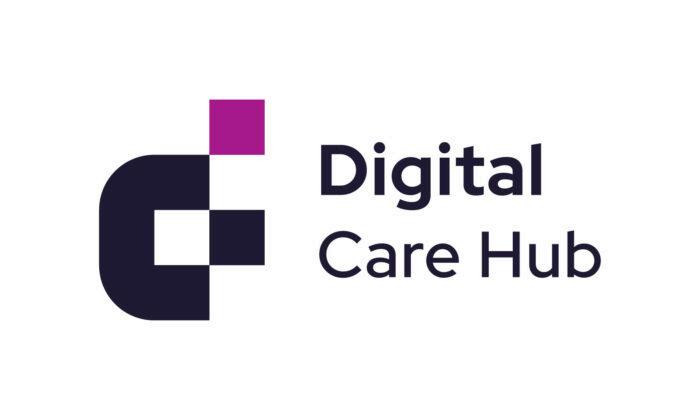
Last month, we held a popular session and recorded the session to share with you all. During this online event we learnt all about the fascinating world of chatbot artificial intelligence:
Topics covered:


● Understand how AI can be applied in adult social care for data analysis, action planning, and operational improvements.
● Use AI tools to draft care plans, develop reports, and design service schedules in line with the latest relevant guidelines (e g , NICE, CQC, and ACAS)
● Critically evaluate AI outputs to ensure compliance with ethical, legal, and regulatory standards
● Integrate AI-based approaches into key care processes such as risk management, menu planning, and resident engagement strategies
● Promote ethical practices in AI adoption, including maintaining confidentiality and avoiding the use of personal identifiable information.
Watch this recording by following the link:
Recording: AI - Generative Artificial Intelligence - Practical Application in Social Care
We also ran another great session:

This session was designed to explore how technology can enhance communication, ensure safety, and support care settings. This is designed for care providers, managers, and professionals looking to improve digital connectivity and adopt best practices in their care homes.
Watch the recording of this event: Communicating Through Technology


1. Safe, Secure, and Appropriate Use of Technology - Gain insights into secure practices, including:
● Using password-protected devices and secure internet connections
● Following the Data Security and Protection Toolkit (DSPT)
● Ensuring communication is appropriate in tone, content, and purpose
2. Supporting Connections - Learn how to help people access and use tools such as:
● Video calling apps
● Smart home devices
● Email platforms for better engagement and connectivity
Setting Up and Using Technology in Care Homes
Internet Setup:
● Options for fixed-line and mobile broadband tailored for care settings
● Managing Wi-Fi effectively
● Preparing for the digital phone switchover
Video Calls:














Information Governance - Plexus - Shared Record for Sussex
Wednesday 12th February: 12.00 - 1.00pm
DSPT - Interactive Workshop - Week 2 Policies & Procedures
Wednesday 12th February: 2.00 - 3.00pm
Single Assessment Framework - Update to CQC’s SAF
Thursday 13th February: 10.30 - 11.30am
Part 2 - Accessible Technology and Problem Solvings in Adult Social Care
Thursday 13th February: 2.30 - 3.30pm
Maximising NHSMail Shared Mailbox and Multi Factor Authentication (MFA)
Monday 17th February: 11 30am - 12 30pm
Digital Switchover and its impact on Social Care
Tuesday 18th February: 11 30am - 12 30pm
Data Protection - ROPA/IAR and DPIA
Wednesday 19th February: 2.00 - 3.00pm
DSPT - Interactive Workshop - Week 3 Data Security
Thursday 20th February: 2.00 - 3.00pm
Information Governance - Plexus - Shared Record for Sussex
Friday 21st February: 11.00am - 12.00pm
Bite Size NHSMail: Essential Tips for Social Care Providers
Tuesday 25th February: 10.30 - 11.30am
Data Security & Your Business Continuity Plan
Tuesday 25th February: 2.00 - 3.00pm
Managing Personal Devices at Work - A Practical Session
Wednesday 26th February: 12.30 - 1.30pm
DSPT - Interactive Workshop - Week 4 IT Systems & Devices
Thursday 27th February: 2.00 - 3.00pm













Bite Size NHSMail: Essential Tips for Social Care Providers
Tuesday 4th March: 10.30 - 11.30am
Information Governance -Plexus - Shared Records for Sussex
Tuesday 4th March: 12.30 - 1.30pm
Bite Size NHSMail: Essential Tips for Social Care Providers
Tuesday 18th March: 12 30 - 1 30pm
Data & Cyber Security - An Introduction to Learning Resources
Tuesday 18th March: 2.00 - 3.00pm
Accessible Technology & Problem Solving in Adult Social Care - Part 1 of 2
Wednesday 19th March: 11.00am - 12.00pm
MS Excel Tools
Wednesday 19th March: 2.30 - 3.30pm
Practical IT Skills Workshop - IT Systems and Devices
Thursday 20th March: 2.30 - 3.30pm
Accessible Technology & Problem Solving in Adult Social Care - Part 2 of 2
Friday 21st March: 10.30am - 11.00am
Republish your DSPT in your lunch hour
Wednesday 26th March: 12.30 - 1.30pm
Data Security & Your Business Continuity Plan
Thursday 27th March: 2.00 - 3.00pm






Join our Sussex Digital In-Reach Team Facebook gr
We will keep you up to date variety of topics, such as the the news from CQC, discussions, advice, training and up to date information designed for Sussex Care staff and managers.





Nada Wakeford nada@westsussexpartnersincare.org
Brian Roberts brian@sussexdigitalteam.co.uk
Sarah McNally sarah@sussexdigitalteam.co.uk
Claire Badzek claire@sussexdigitalteam.co.uk
Natasha Fowler natasha@sussexdigitalteam.co.uk
Georgie Ind georgie@sussexdigitalteam.co.uk
Sam Harper sam@harperdigitalskills.co.uk
Or phone us on 07860 630063 www.sussexdigitalteam.co.uk

We would love to have your feedback. Whether it’s good or bad, please drop us a line with how you think we’re doing.
Do you have any training ideas or needs we can help with, are there any topics you would like covered in our newsletter or social media posts? Email us to tell us your thoughts. support@sussexdigitalteam.co.uk
